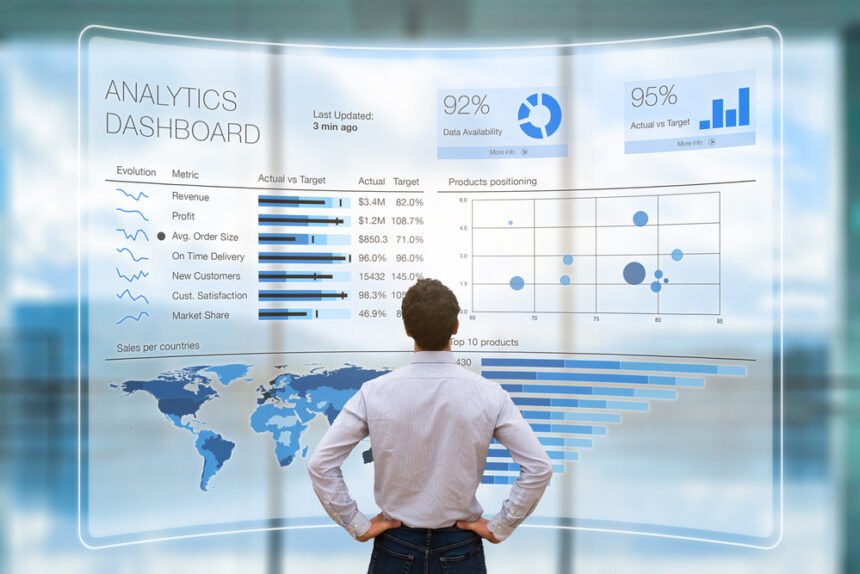Business likes specifics. If there are sales, the management needs to know exactly how much product was sold today, how much last month, how much more or less compared to last year. They need to ask important questions such as what is the turnover, how much was the profit and what are the cost dynamics. Such questions arise in any company. Smart companies know how to use big data to accomplish these goals.
All the necessary information is available in corporate systems and it is accessible to managers. In a small company, it is possible to keep tables in Excel. In a larger company managers download data from numerous systems that help manage production, deliveries, warehouses, and other areas.
But what does a business need this information for? To look at reports and give the command to optimize everything and cut costs to increase profits? In fact, this is more or less the case. The management decisions depend entirely on the depth of the analysis of available information.
Why do commercial organizations need BI systems?
While top management is concerned with global issues, line managers are more concerned with the state of affairs in their specific line of business. How would the profit from each car sent to counterparts A and B in different regions change if the fuel price went up by 5%? What products should the restaurant chain buy more, taking into account the menu, price trends, costs, and shelf life? Is it necessary to move the contact center for customer service from Madrid to the region, and to which region, taking into account the local rental rates, the cost of communication channels, the availability of qualified labor, and the size of the average wage? What kind of merchandise should be displayed next to the cash register in the supermarket?
Answers to questions are usually needed quickly. BI (Business Intelligence) systems exist to solve problems. This is a long and actively developing class of applications, which allow to take all business-relevant parameters and build analytical reports on them independently, instantly, and in any context.
By collecting data from different departments, the BI system produces the correct answer in a single format. In fact, it provides visual information about what is happening in the business in the chosen area and what will happen under given conditions set by the analyst.
The importance of BI proves the fact that the world’s leading IT vendors such as IBM, Microsoft, Oracle, SAP, SAS, QlikTech, etc. are involved in these systems. In fact, the entire analytical reporting of the companies is based on the multi-dimensional data operated by BI.
So, what specific tasks do BI systems solve? Top-manager sees with their help profitable and unprofitable directions of business, dynamics of incomes and expenses. Obtaining the necessary data for specific sections, he or she can reasonably predict the development of the situation in each area and make decisions.
With the help of BI, the sales department has a tool for planning and evaluating the execution of plans. The reports show the efficiency of each manager and the dynamics of sales to each client. The analysis also reveals the dependence of sales from some related factors: season, the presence of competitors in a particular area, etc. Financiers can use BI systems to plan budgets, obtain consolidated financial statements, analyze cash flows using the system.
When business intelligence is needed?
Once a business reaches the scale at which Excel tables cease to be considered analytics because they don’t help navigate the multidimensional world, it wonders what analytics system to use. The question really goes something like, “How will my profits change if one or more business conditions change, and who can help me decide what I need to do to increase them?” For the answer, it’s worth turning to BI.
Marnix Broer, Co-Founder of Studocu, also pays attention to the industry-specific demand for BI: “The largest number of BI projects is being implemented in three industries: the financial segment, retail, and the public sector. In each of these segments, business intelligence provides the ability to solve specific problems. For the retail segment, analytical tools also provide many applications. This includes sales analysis, like-for-like reports, data visualization on various geographical maps, and analysis of product baskets.
Conclusion
Companies in a variety of sectors are turning to BI-based solutions. Thanks to the business intelligence system marketers acquire a tool that helps to analyze the market, study competitors, customer behavior, forecast demand and supply, determine the most effective sales tools and analyze the effectiveness of marketing promotions. Production managers and logisticians use business intelligence to develop a production plan, manage shipments, inventory, supplier relationships, analyze vehicle routes, etc.
However, it is important to note that not all countries have developed their own expertise in business intelligence software development. It is difficult for commercial companies in some countries like Montenegro to implement quality BI-based solutions.

